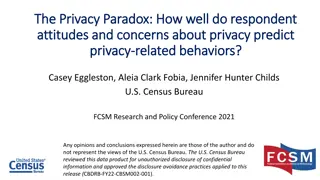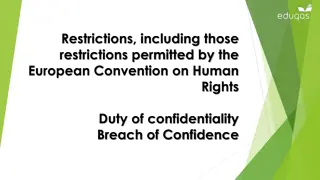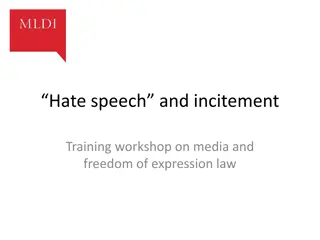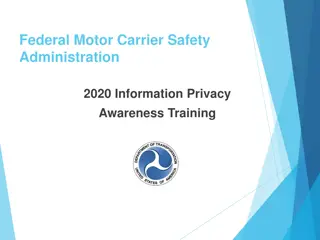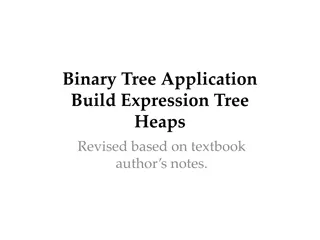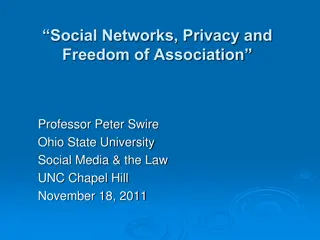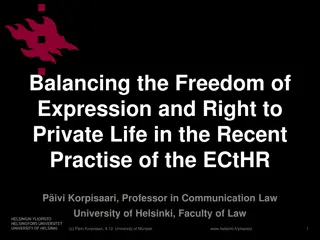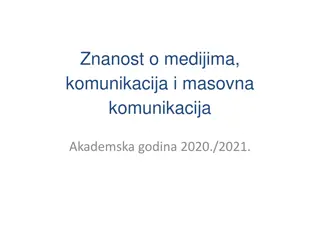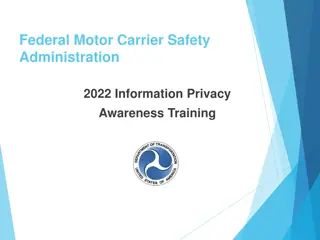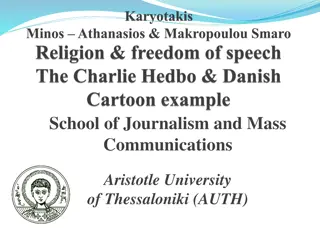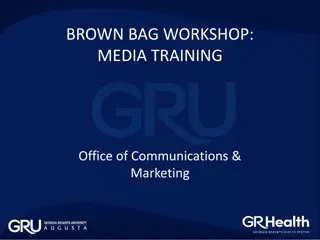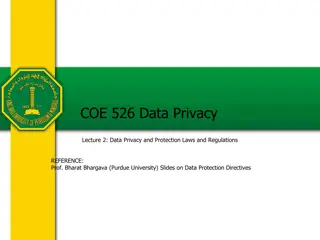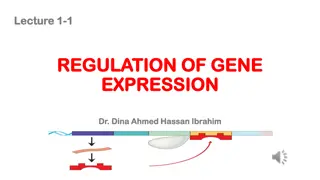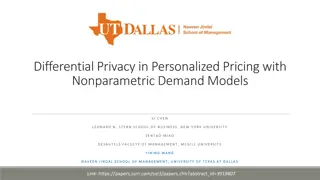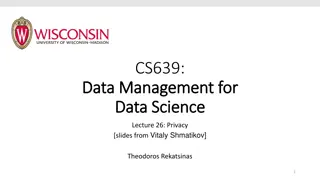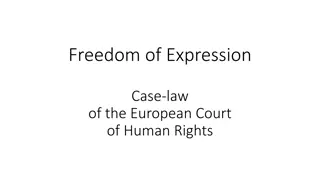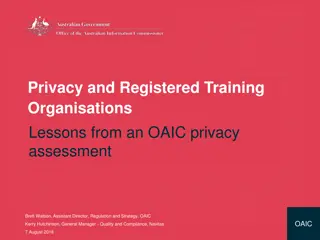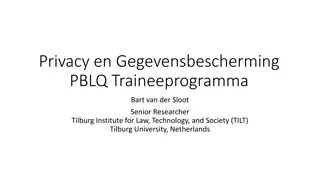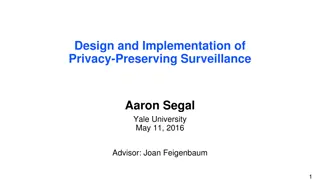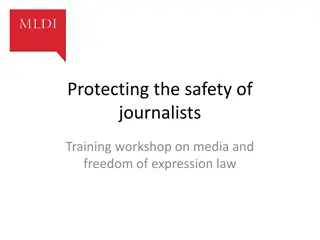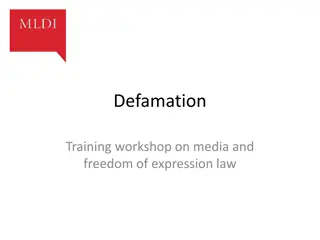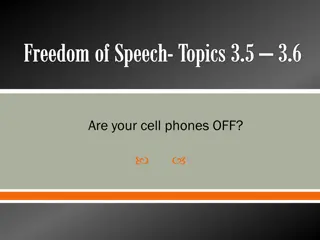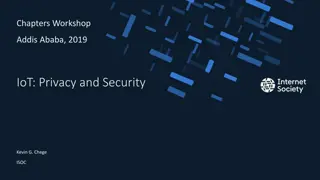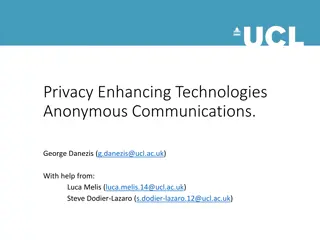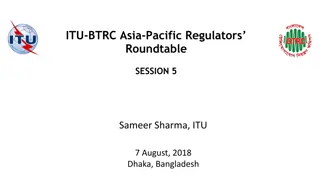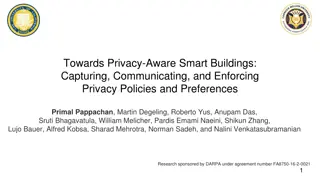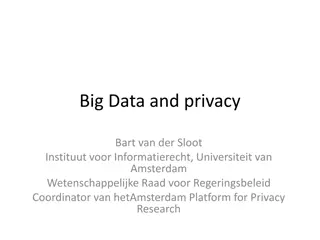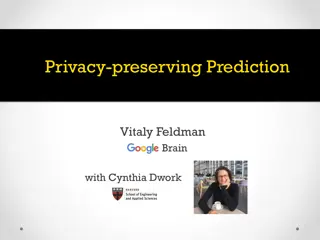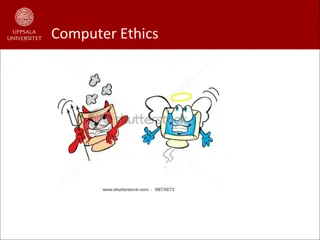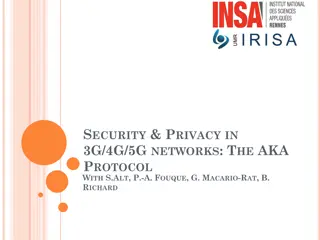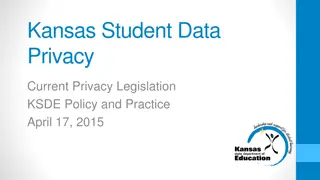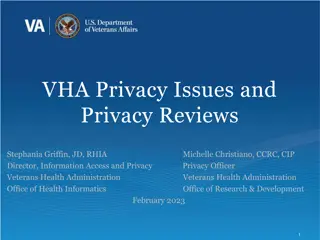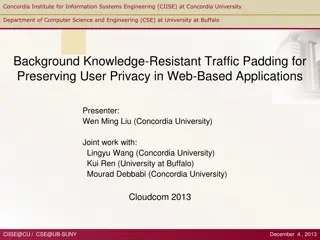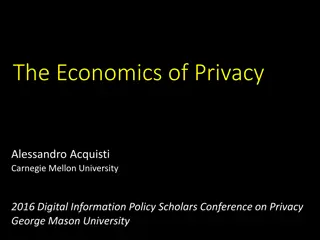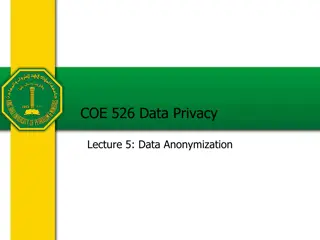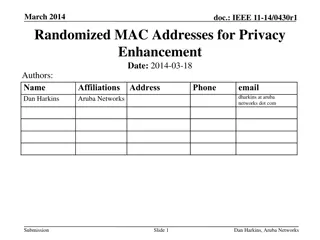Privacy Training Workshop on Media and Freedom of Expression Law
Explore the complexities of balancing privacy rights with freedom of expression in the context of media law. Understand how different national laws approach privacy protection and the impact on public figures. Delve into case studies, such as Naomi Campbell's legal battle, to grasp the nuances of privacy laws in different jurisdictions and the consideration of public interest by international human rights bodies.
Download Presentation

Please find below an Image/Link to download the presentation.
The content on the website is provided AS IS for your information and personal use only. It may not be sold, licensed, or shared on other websites without obtaining consent from the author. Download presentation by click this link. If you encounter any issues during the download, it is possible that the publisher has removed the file from their server.
E N D
Presentation Transcript
Privacy Training workshop on media and freedom of expression law
No one shall be subjected to arbitrary or unlawful interference with his privacy, family, home or correspondence (ICCPR, Art. 17) ACHR (Art. 11) and ECHR (Art. 8) also protect privacy ACHPR does not mention it.
Point for discussion National law on privacy varies enormously. French law, for example, protects the right to privacy. US law acknowledges privacy, but it is likely to lose out when balanced against press freedom, which is constitutionally protected. What does your national law say about privacy?
How can privacy be balanced against freedom of expression? The ECtHR would consider the public interest (as with defamation cases). This might involve wrongdoing but it might also relate to matters of public policy.
In the European case law, public figures and non-public figures have the same privacy rights - the difference is where there is a genuine public interest.
The IACHR has taken a slightly different view. In Fontevecchia and Anor v. Argentina, it noted the importance of public interest, but also said there was a different threshold of protection for public officials.
A case to consider A newspaper reports that a well-known public figure is being treated for drug addiction (and includes pictures her attending a clinic). She previously denied drug dependency. She sues for breach of privacy. What should the court decide?
These are actually the facts of a case involving model Naomi Campbell (MGN v. United Kingdom). She won in the court of first instance, lost on appeal and had the original verdict restored in the highest court. The ECtHR supported the original verdict (but not the very high award of costs).
Breaching privacy by covert means The phone-hacking scandal in the UK drew attention to breaches of privacy by covert (and illegal) means. Newspapers hacked the phones of celebrities and others in the news. The ECtHR, however, has found in favor of journalists who gather or report covertly gathered material provided it is in the public interest. (Radio Twist v. Slovakia and Haldimann v. Switzerland)
Hypothetical case for discussion A newspaper publishes a list of women who are alleged to have had abortions. The information comes from medical records leaked to the paper by a staff member in a clinic who is opposed to abortion on religious grounds. A number of the women whose names are published sue the newspaper for violating their right to privacy. What should the court decide?
One of those who sues is a well-known actress. Should the court reach a different decision in her case?
Another woman is a prominent politician who is well-known for her anti-abortion views. What should the court decide in her case?


